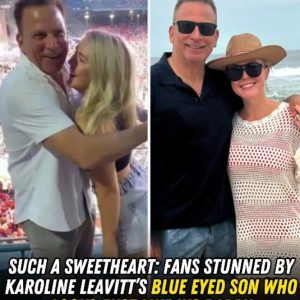I thought I had it all figured out. Liam and I had built a quiet, content life—our cozy apartment, our shared love, our sweet cat Luna, and dreams of someday building something even more beautiful together. When he proposed after three years, I said yes without a shred of doubt.
Then my grandmother died. And everything changed.
She’d raised me. Loved me like no one else ever had. When she passed, the grief hit like a landslide. And amid the sorrow, I learned she’d left me $500,000. I didn’t know what to feel—gratitude, guilt, heartbreak? All of it tangled together.
But when Liam’s mother, Margaret, found out about the inheritance, her tone changed. Suddenly, I wasn’t just Emma, her son’s fiancée—I was a walking, breathing wallet.
It started over Sunday dinner. The air smelled like roast beef and polite tension. Margaret pulled me aside with that cloying smile she wore like perfume. “Honey, I know you’re grieving, but life goes on,” she whispered, handing me an envelope. “We just want to make sure you feel like family.”
Inside was a list—not a note, not a prayer. A list.
Requests, demands, a price tag for my place at the table.
A $10,000 Cartier bracelet—for Margaret, to show “gratitude.”
A new car for Liam’s sister Sophie.
A $20,000 “loan” for kitchen renovations.
A Rolex for the father-in-law.
First-class family vacation for ten.
And a $2,000 monthly “family support contribution.”
My face went hot. I laughed, thinking it was a joke. Margaret didn’t blink. “It’s just tradition,” she chirped. “A small gesture to show you’re serious about being part of the family.”
A gesture. That word rang in my ears like a warning bell.
I played along. Smiled, nodded, took my slice of pie, and listened as she went on about bracelet sizes and car colors. All the while, I was barely holding back tears. Not from the list—but from the realization that these people saw my inheritance as their windfall. My grandmother’s death was their opportunity.
Later that night, I sat across from Liam in our apartment, that envelope like a loaded gun between us.
“I said yes,” I told him flatly.
He blinked. “That’s good, right?”
“Is it?” I asked. “Your mom gave me a shopping list worth over a hundred grand.”
He rubbed his neck. “You know how she is—it’s just a gesture.”
I stared at him. “That’s the exact word she used. A gesture of my commitment to the family.”
He shrugged. “You have money now, and my parents are struggling…”
“They’re not struggling,” I snapped. “And even if they were, that money came from my grief. I’d trade every cent for one more day with my grandma.”
He looked uncomfortable. Good.
“I would’ve helped your family—if they’d treated me like family,” I said. “Instead, they treated me like a bank.”
Liam didn’t say much after that. Just shrugged and said I was overthinking it.
So I decided to show them how serious I was about joining their family.
The next Sunday, I returned to Margaret’s house—with gifts.
She was glowing. Practically vibrating with anticipation.
I handed her a Cartier box. Inside? A plastic bracelet from the dollar store.
Sophie got a Hot Wheels toy car.
My father-in-law received a fake Rolex that ticked too loudly.
For the family vacation? A local bus tour brochure.
And the $20,000 kitchen loan? A Monopoly card that read “Bank Loan: Collect $20,000.”
The room fell quiet.
“What is this?” Margaret gasped.
I smiled sweetly. “Just a few symbolic gifts. Gestures, really.”
Margaret turned red. “This isn’t funny.”
“You’re right,” I said, leaning in. “It’s not. Neither was treating me like I had to buy my way into your family.”
Finally, Liam opened his mouth. “You’re overreacting again.”
“No, Liam,” I said, standing. “I’m not. Your mother tried to extort me in the middle of my grief, and you defended her. That told me everything I needed to know.”
I pulled off the engagement ring and set it on the table.
“Find someone else to bankroll your family.”
And I left.
I didn’t cry. I thought I might. After all, it was three years of love, laughter, plans for a future. But I felt nothing. Just relief.
Back at the apartment, I packed Liam’s things into boxes I picked up at a garage sale. When he walked in and saw them, he froze.
“Emma, what…are you kicking me out?”
“Yeah,” I said, sealing another box.
“Please,” he begged. “Let’s talk.”
“We did,” I replied. “You just didn’t listen.”
He reached for words, excuses, apologies. I didn’t care. He wanted me to stay, to forgive, to forget. But I couldn’t. I wasn’t grieving a breakup—I was grieving what I thought we were.
“You can stay with your mom,” I said. “Luna stays with me.”
He choked up, but I didn’t waver. I handed him the last box and closed the door behind him.
The texts came for weeks. Apologies. Rationalizations. Pleas. His last message read:
“My mom got carried away, but we can move on. I love you.”
I didn’t respond.
Margaret went on a social media rampage, calling me a gold digger. Ironic, considering she handed me a literal invoice.
But I didn’t care.
I bought a beautiful home with my inheritance—a place filled with peace, sunlight, and not a single person who saw me as a bank account.
Best decision I ever made.





